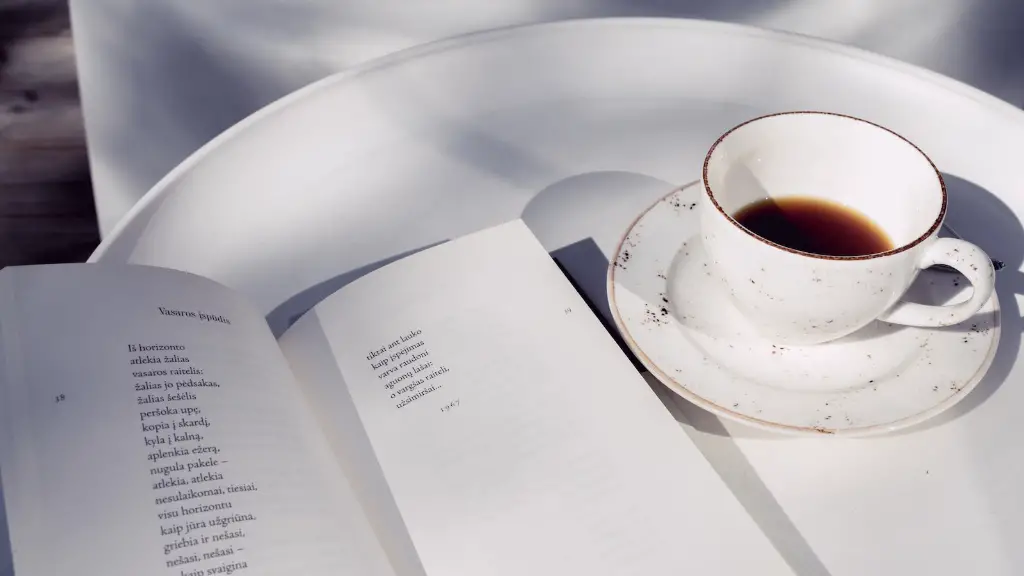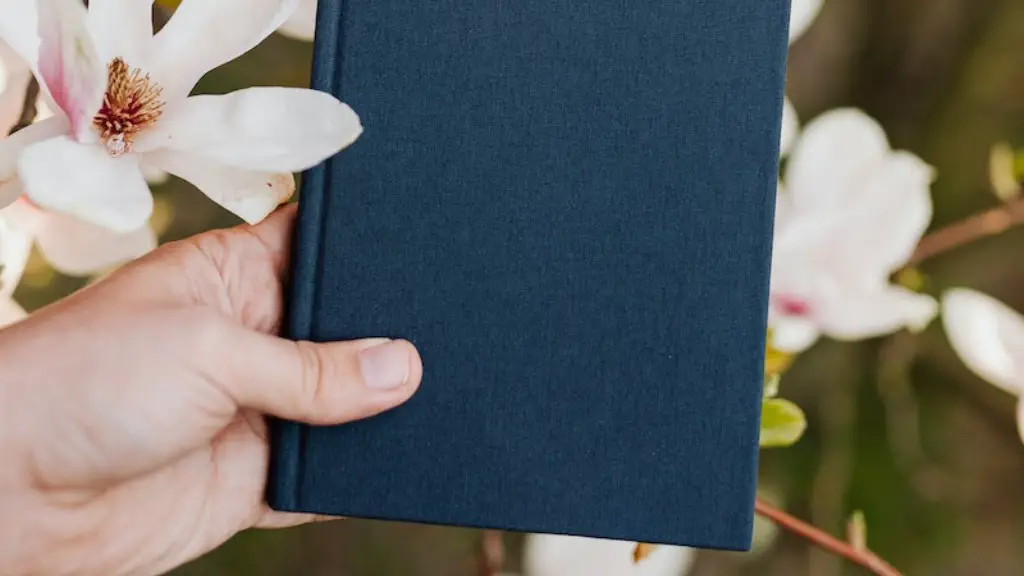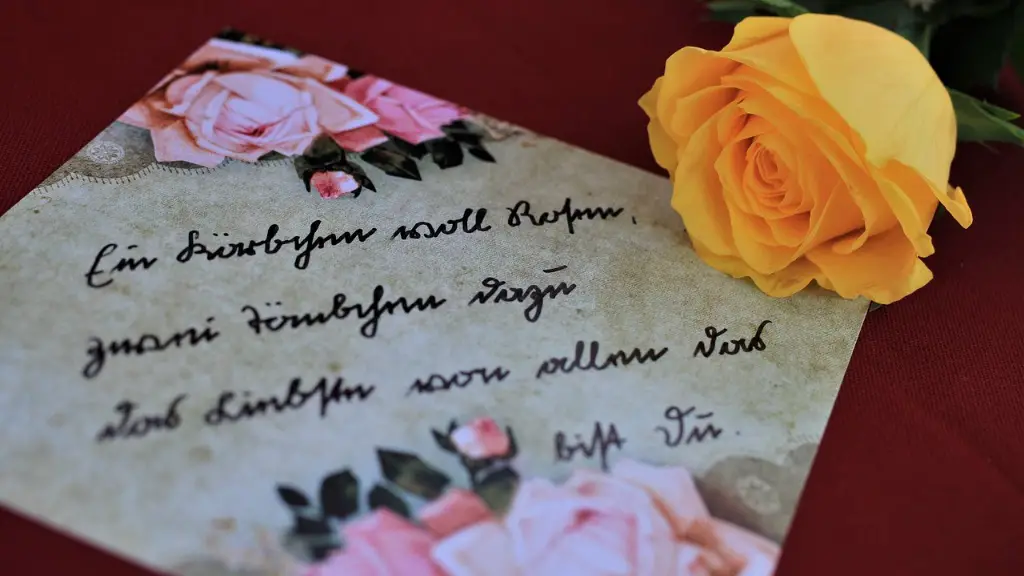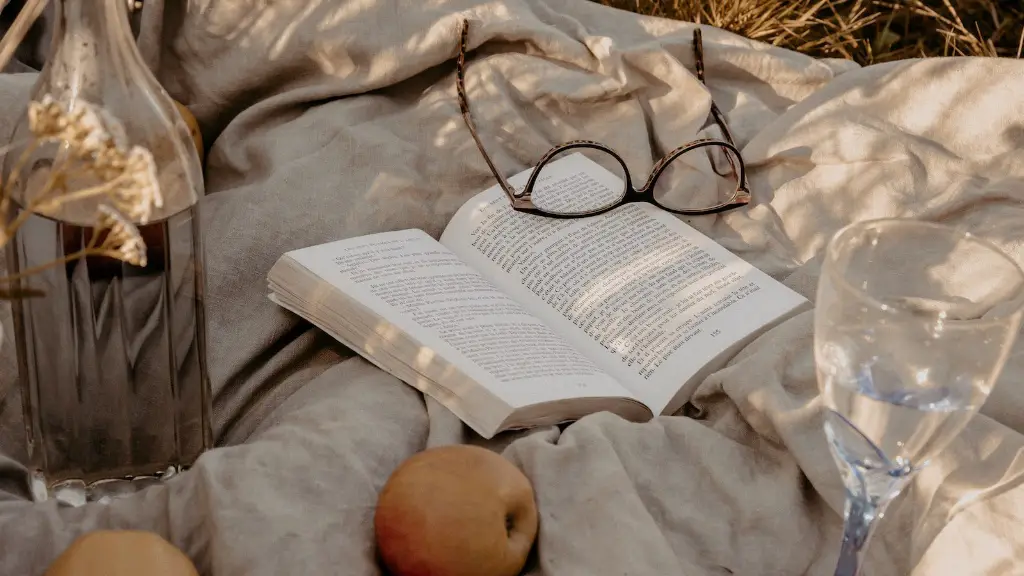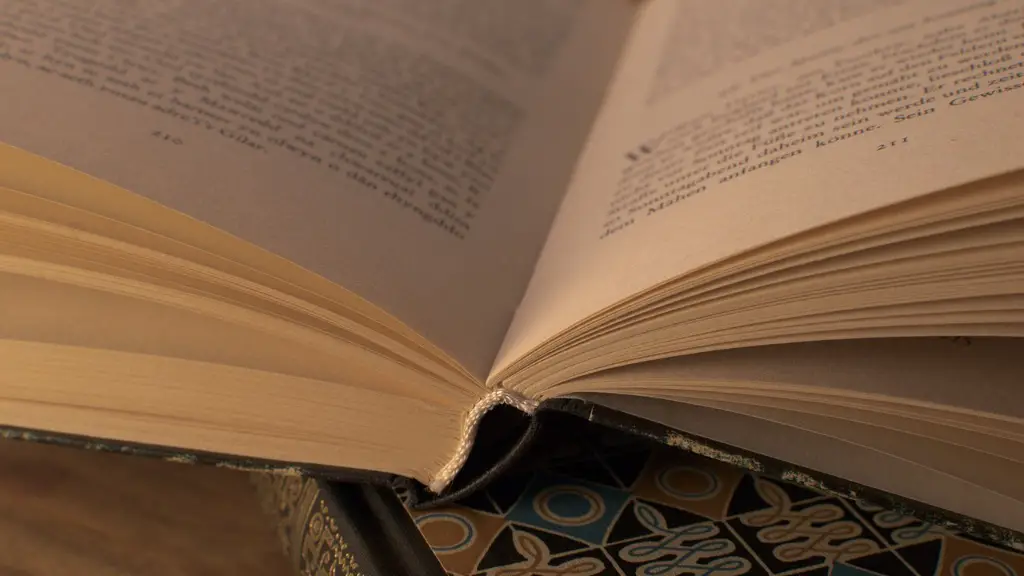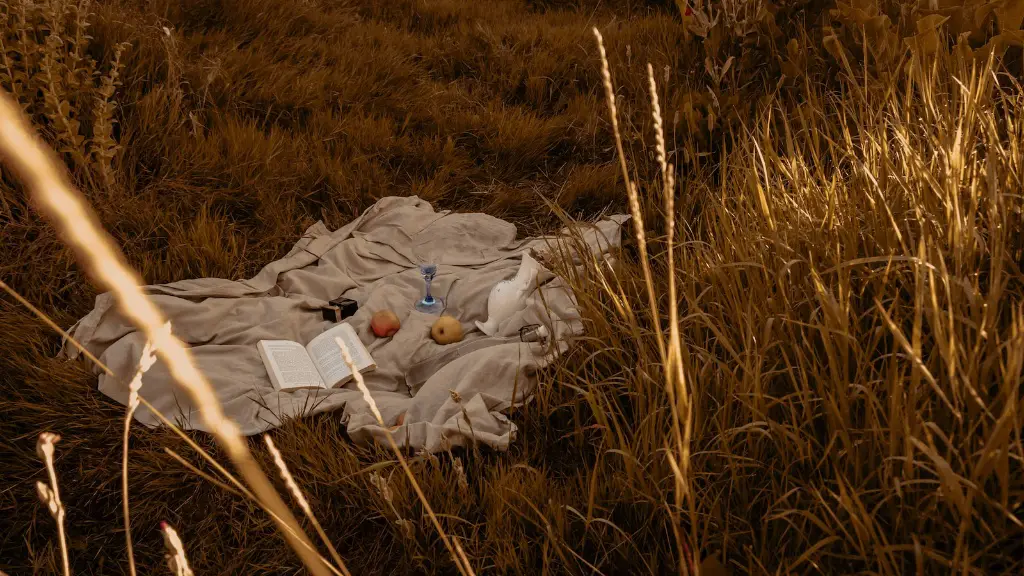Poetry is often called the highest form of literary art, and for many writers, it is a passion. Crafting the perfect paragraph of poetry can be daunting, but it can also be incredibly fulfilling. With the right understanding of poetic language and the right artistic vision, any writer can bring a beautiful poem to life.
To create a great paragraph of poetry, understanding the basic structures of traditional poetic forms is essential. Most great poetry is built on carefully constructed lines, stanzas, and verse forms. While some contemporary poets break away from these traditional forms, it’s important to learn and understand these methods to write an effective paragraph.
A great piece of poetry follows specific conventions, often expressed through rhyme, alliteration, repetition, and other sound elements. These can lend to the rhythm and flow of the piece, helping create a sense of cohesion. Poets often use these techniques to echo their intended meaning throughout the piece, while ensuring each line is hearing its best.
Beyond the structure of a poem, poets must also consider what elements of symbolism, allegory, and imagery to use. Poets strive to create a distinct atmosphere in their pieces, often inspired by their own personal experiences or crafted to evoke a distinct emotion. Imagery helps to bring an understanding of the subject, often making the reader more deeply invested in the piece.
Finally, a poet must consider the overall tone and purpose of their piece. Depending on the poem’s message, the use of language can vary greatly. Sarcasm, anger, joy, and sadness can all be expressed through a poem. Creating a masterful paragraph of poetry requires the same care and consideration given to any other piece of writing.
Events in Poetry
Events can be some of the most poetically charged moments, and poets throughout the centuries have used them to convey vast emotions and ideas. Events can serve as a lens through which to decipher not only the raw feelings bound up in the moment, but also the importance of the moment itself.
A poem can center around one event, or multiple events, related or unrelated. While the particular elements of a single event can themselves be interesting, poets must consider how the events fit together to form a narrative. In a single poem, the events can reflect a singular larger experience, or be used to draw out the more subtle implications of each moment.
Events in poetry can also be used to convey a message. Poets frequently use events to illustrate how abstract concepts manifest in reality. By distilling the emotions within a moment, the poem can serve as a commentary on the greater context of that event. How the poem’s language is written reveals a great deal about the poet’s own experience with the moment.
Events can be profoundly affecting, and the power of a poem lies in its ability to capture the emotion and movement of an event quickly and succinctly. This compact form gives events in poetry an immediacy that can carry an emotional force and thought-provoking resonance throughout a reader’s experience.
Revisiting History Through Poetry
History can often feel distant and distant, and sometimes difficult to relate to in the present day. By understanding the events, people, and movements of the past through poetry, readers can make these past events more relevant and alive today.
Captivating historical poesy primes readers for a journey to another time and place, contextualizing the events and giving them a human face. That human element reframes history and provides new insights into people and eras – all through a poetic lens. By accessing centuries-old traditions, the historical poem evokes the resonance and sympathy of generations, allowing those of the past to speak to those of the present.
The unique lyricism of poetry gives an perceptive view into the struggles and successes of the past. This narrative bridge can be extremely powerful, personalizing the events to a greater degree and revealing nuances often overlooked in traditional history books. Focusing close up on the details of a moment gives historical poetry a human touch, and presents the past in a new light.
From the Greek tragedies to modern-day poetic eulogies, people have used poetry to pause and reflect on the issues of the past. By revisiting and reinterpreting the historical record, poets can more effectively empathize with the people of the past and create a conversation between ages.
Creativity in Poetry
Creativity plays a major role in writing a great piece of poetry. A poem can be crafted from almost any inspiration, and the journey of crafting a poem often reveals new truths and techniques. Creating a poem requires a thoughtful and open attitude – welcoming unexpected creativity, while seeking out beauty in the everyday.
To access the potential of creativity, a poet should choose their words carefully and think deeply about each element of their poem’s construction. Aiming to find new and creative angles of expression, deepens the meaning of the piece and urges readers to look more deeply into the poet’s words.
Exploring, discovering and channeling inspiration is difficult work and it requires a willingness to step outside of our own preconceived notions of what is beautiful or meaningful. By pushing past boundaries, a poet can more effectively create something original.
Poetry is a unique form in that it allows for experimentation and exploration. A poet should continuously consider different approaches to their work – toying with form, flow, and various poetic devices such as metaphors, similes, and allusions. While it’s important to challenge oneself, it’s also important to trust the creative process.
Spontaneity in Poetry
Spontaneity is often the hallmark of a breakthrough poem. As a poet explores the creative possibilities shared by any particular topic, some of the most profound insights often come by tapping into the unplanned moment.
It can be difficult to follow an unplanned moment, as convention often says that every line needs been thought out and planned. But an unexpected moment can bring greater authenticity and impact to a poem, and can set poem apart from many of their peers.
The willingness to take risks and explore untested ideas can be more rewarding than following a preordained formula. Often the great discoveries of a poem – those which give it new layers of meaning and connection – come from a moment of unexpected inspiration.
Naturally, the benefit of spontaneity can sometimes lead to worse writing. That’s why it’s important to consider the effects of both “good” and “bad” spontaneity, and take time to research, reflect, and make informed decisions. As with any creative process, trust the right moments and make sure the poem is edited to express it’s full potential.
Connecting with Others Through Poetry
In their most powerful moments, poems can reach readers in unparalleled ways, forging a sense of connectivity across language, religion, and ideologies. Poetry is truly a representation of the human experience, and can provide direct pathways between readers of different backgrounds.
At its most simple, a poem’s vision is often shared by a reader’s own. When readers respond positively to a poem, a feeling of connection can arise – an expression of why the poem was written, and why it resonated with them.
When a poem reaches a deep emotional state and connects with the audience in a broader way, it often speaks for more than the poet. It speaks for those who have not been heard, those who do not have a voice, and those who feel disconnected from their worlds. The words of a poem can provide warmth, connection, and emotional refuge.
A poem can thus become a storyteller, expressing the emotion of an individual while also representing the emotion of a larger group. Through empathy and understanding, poetry can allow readers to recognize and draw strength from each other.
Reflection in Poetry
Poetry can be profoundly powerful, inspiring readers to look within, and encouraging them to confront the ideas in their lives, and to consider the bigger questions of life. By immersing oneself in reflection through poetry, readers can gain insight into their own thoughts, feelings, and purpose.
In this regard, poetry serves as a personal outlet for readers to evaluate their present state and reflect upon any previous decisions. By reflecting on the thoughts and emotions of the poet, readers can bring structure to their own contemplations, helping them to more effectively answer their queries.
By connecting with an idea or topic of their own, readers can also gain a greater understanding of the world and their place in it. Through an introspective lens, readers can gain insights into their own experiences while acknowledging and appreciating the experiences of others.
Poetry can serve as a reminder – of our mortality, the inevitability of change, and the promise of something better. By closely examining life, a reader can gain greater understanding of our shared humanity and the struggles and joys of living in the world.
